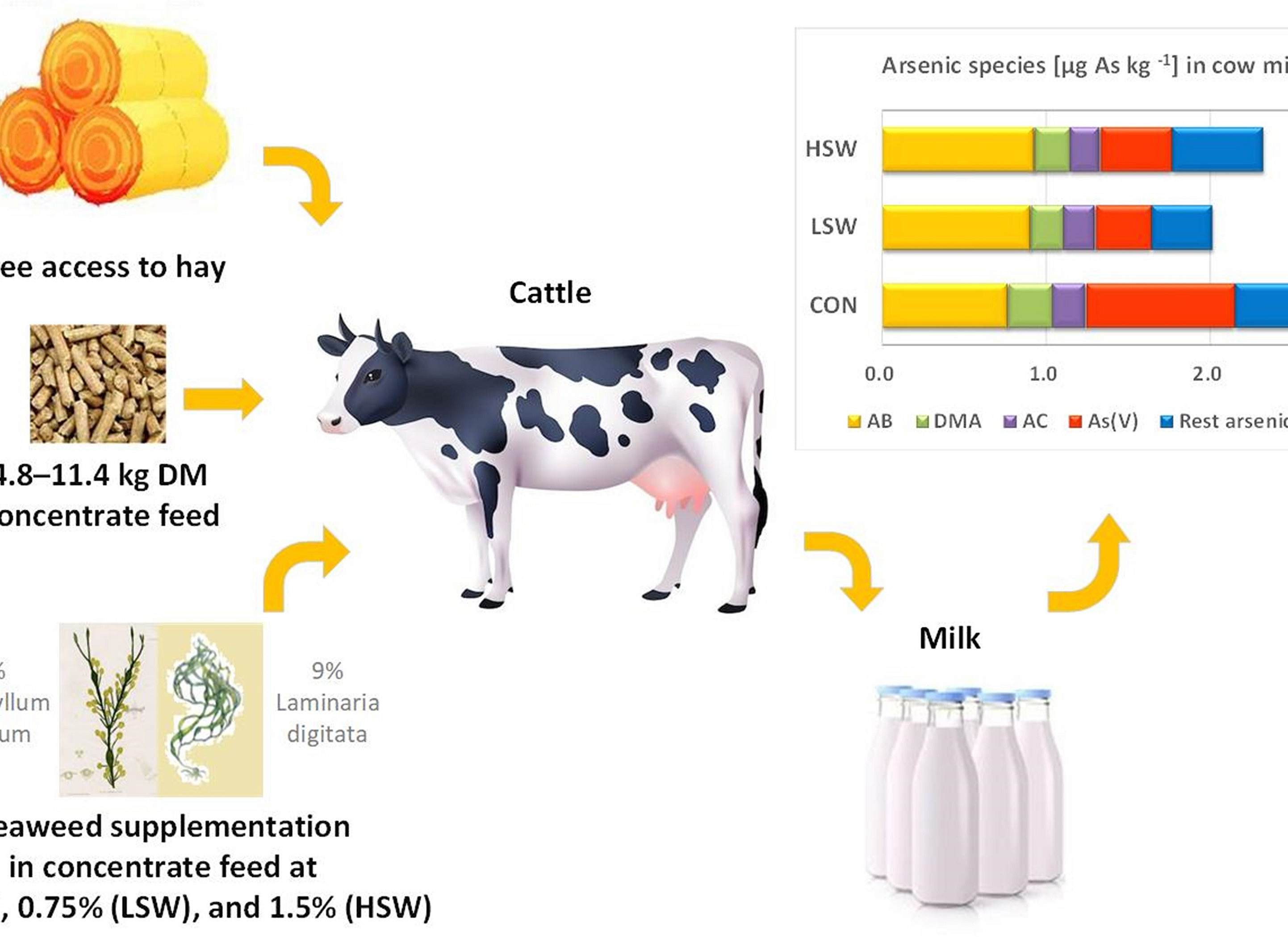Algae has been used as animal feed supplement in coastal areas since ancient times. It is currently an underutilized resource that can have a positive effect on animals due to its valuable components. In the current study, we investigated whether the supplementation of algae has an impact on the arsenic profile of milk. The result shows that both As(V) and total arsenic decreased when algae were supplemented, indicating that there are no safety risks for milk and dairy products when feeding an algae mixture of 91% Ascophyllum nodosum and 9% Laminaria digitata at the levels used in the present study, taking into account the arsenic content.
Begin of page section:
Page settings:
End of this page section. Go to overview of page sections
Begin of page section:
Search:
Close
End of this page section. Go to overview of page sections
Search
Begin of page section:
Main navigation:
Page navigation:
- University
University
Developing solutions for the world of tomorrow - that is our mission. Our students and our researchers take on the great challenges of society and carry the knowledge out. - Research Profile
Research Profile
Scientific excellence and the courage to break new ground. Research at the University of Graz creates the foundations for making the future worth living. - Studies
Studies
- Community
Community
The University of Graz is a hub for international research and brings together scientists and business experts. Moreover, it fosters the exchange and cooperation in study and teaching. - Spotlight
End of this page section. Go to overview of page sections
Begin of page section:
You are here:
End of this page section. Go to overview of page sections
Begin of page section:
Additional information:
End of this page section. Go to overview of page sections
End of this page section. Go to overview of page sections
